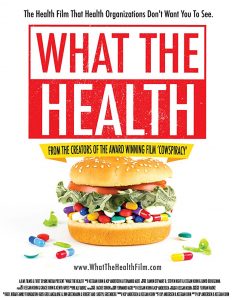- The Uprising of Vegan Millennials - December 6, 2017

By Lilia Lundquist
The percentage of Americans who identify as vegans is soaring, increasing six fold since 2014. According to one recent study, women, millennials in particular, are the apparent trendsetters, abandoning consumption of all animal products, citing ethical considerations, overall well being and the inspiration of recipes and testimonials shared through social media.
The content we are fed on a daily basis plays a huge role in not only how we see the world, but how we see ourselves. If you were to go onto any social media page, Facebook, Instagram, or Twitter, you are bound to come across person advocating
Flourishinghealth, a Swedish woman’s Instagram page promotes vegan eating for healthy eating and living. Others have created pages that strictly show how to cook or shop vegan. Many blogs that even pertain to fitness are run by someone who partakes in a vegan or vegetarian lifestyle.
“I follow a handful of vegan cooking blogs,’ says Sharleen Sanchez, a UAF student majoring in biology, who has been vegan for three years now “it’s encouraging in maintaining my lifestyle when recipes are so easily accessible.’
In a study conducted by Harvard in 2015, the top reasons people gave for giving up meat, fish and dairy products were,
- To eat a healthier diet in general
- Reduce the suffering of animals
- Eat cheaper food
- Reduce their impact on the environment
- For spiritual beliefs
In the past few years a number of popular documentaries like Cowspiracy and

Vedgucated, have been released concerning the health risks of the food we eat, specifically meat products. In the film, What the Health, the opening scene begins with Dr. Garth Davis, a medical professional who specializes in weight loss surgery describing statistics for childhood obesity.
“Currently 18 percent of America’s youth is considered obese, and with the way Americans eat we are on track to having 1 in 3 people being diabetic in the next 20 years.’ says Dr. Davis.
He describes the contributing factors for these diseases are the processed foods we eat on a daily basis. The antibiotics and growth hormones found in farmed meat have been found to be linked to not only diabetes but cardiovascular disease.
“Information regarding what is really in the food we eat is a huge contributor to people converting to meat-free lifestyles’ says Doug Schmoll, during an interview. He is the owner of Potpourri health foods, a small business in Willmar, Minnesota “most people are blind to the chemicals and preservatives found in today’s food, and how foreign it is to our bodies.’
With exposure to social media, millennials may find themselves comparing their own bodies to men and women, posting photos of their slim bodies with glowing flawless skin. For this reason, some people attempt to better themselves physically. From people who incorporate a vegan diet into their lifestyle, they claim that abstaining from meat and processed food works for them in their beatification process.
Of course, vegan diets do not appeal only to those who want to or care about looking good. Many millennials abstain from animal products for ethical reasons. People are beginning to understand how much animal products Americans consume daily. With how high the demand is, it is not practical to assume that all farmed pigs, cows, and chickens are treated humanely before being sent to the slaughterhouse.
The American society for the prevention of cruelty to animals , an organization dedicated to end animal cruelty, examined the treatment towards factory farm animals in an online article from 2014.
“At just two to three weeks old, piglets are removed from their mothers and placed in large, windowless sheds without fresh air, sunlight or outdoor access.’ to add on to the inhumane treatment taking place in factory farms, ASPCA, states that 75 percent of animals who live their lives unable to walk or stand are dairy cows.
In a study ran by High Country News, the top meatpackers were examined to see just how much meat is being processed on any given day.
On a typical day, Tyson foods, the world’s No. 1 supplier of beef and pork, and second for chicken, slaughters roughly 29,000 animals for processing, according to a 2016 article by High Country News, which examined just how much meat is being processed on any given day.
The company based out of Arkansas, distributes meat to over 90 countries. Processing that many animals for market may be efficient, but likely isn’t done through ethical treatment, some millennials contend.
“Animals raised for consumption are objects’ said Alex Gonzalez, a 22 year-old UAF senior studying nutrition science, “they lack any quality of life, most don’t even see the world outside their slaughterhouse.’
Even more influential are the vast number of celebrities today, who promote vegan living. Influential people like Ellen DeGeneres, Waka Flocka Flame and Miley Cyrus to name a few, have all been very outspoken about their eating habits. Many rave on about how great their dietary restrictions make them feel, and how it’s made it easier to stay in shape.
Doug Schmoll, the owner of Potpourri Health Foods has hope that more Americans will inch more towards healthy living, “As people are becoming more outspoken of what’s really in the food we eat, we’ll see more waves of vegan lifestyles, or at least a shift away from putting processed “foods’ into our bodies.’
